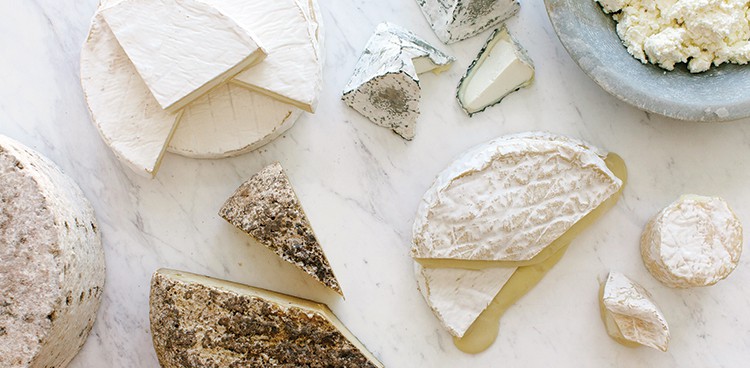
Standing in the middle of Many Fold Farm’s sunny 280 acres, it’s hard to believe Atlanta’s metro are of nearly six million people is just a short commute away—and that’s the way the residents of Chattahoochee Hills, Ga., like it. Thanks to the fledgling city’s strict zoning laws, citizens can have their sushi and eat it, too, enjoying the amenities of the state’s nearby capital with no fear of urban sprawl. It is, more or less, a first-generation farmer’s utopia.
Back to the Land
High school sweethearts and Atlanta natives Rebecca and Ross Williams didn’t set out to be Southern farmers. In fact, they headed to New York, where Rebecca majored in English at Sarah Lawrence College and Ross studied city planning at New York University. But after just three semesters, Ross decided to take some time off.
In pursuit of “a different academic experience,” he later landed in Asheville, N.C., enrolling at Warren Wilson College. The school, part of the Work Colleges Consortium, requires students to hold an on-campus job to graduate. Some of the most sought-after positions are at Warren Wilson’s 275-acre farm, and Ross wanted in—but with no agricultural experience, he had to get creative to secure a spot. During his interview, he talked up his web skills. Turns out, that’s exactly what they needed.
After graduation Ross moved to central Massachusetts for a short stint at Heifer International’s Overlook Farm. There, he gained invaluable livestock experience working with all kinds of animals—from heritage-breed cows to water buffalo to dzos, a cow-yak crossbreed. But home called, so Ross and Rebecca ventured back below the Mason-Dixon line, got married, and subsequently took internships together at Hickory Nut Gap Farm in Fairview, N.C. It was a trying experience, the couple says, but a worthwhile one.
“We learned from them learning,” Ross says. Their time at Hickory Nut Gap, coupled with the modern back-to-the-land movement, inspired them to strike out on their own. Agrarian genes didn’t hurt, either. “My mom’s grandparents had a farm,” says Ross. “That probably subconsciously influenced me to think: Yeah, I could do that.” So they began looking for acreage.
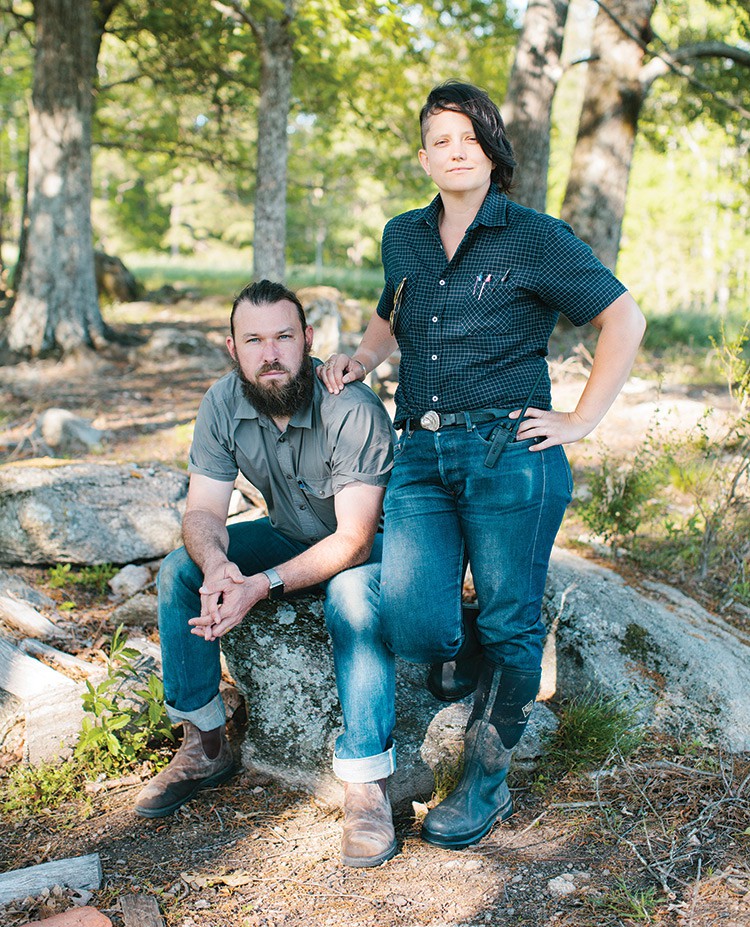
Forging New Traditions
You’d be hard-pressed to find Chattahoochee Hills on a map. That’s because the hamlet has only existed for eight years, established when residents voted to incorporate parts of Fulton County as a separate municipality in 2007.
It was a direct response to Atlanta’s ferocious urban sprawl—by becoming an independent city, locals could craft rigorous zoning laws designed to preserve the neighborhood’s rural feel. These regulations guarantee that strips malls, McDonald’s, Walmart, and other suburban staples won’t gobble up pasture or farmland.
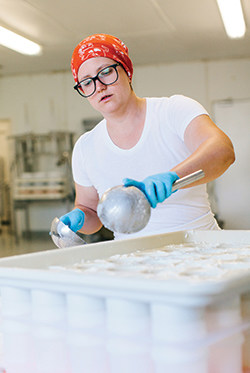
Rebecca Williams ladles curds into molds.
For Rebecca and Ross, this opportunity was too good to pass up. “A farm is only as good as the community it’s in,” says Rebecca. “We’ve worked on farms that were so [rural and] isolating—that’s what scared us, being far away from people.” In autumn of 2009, the couple founded Many Fold Farm in Chattahoochee Hills. A few months and Vermont Institute for Artisan Cheese workshops later, the Williamses purchased a small starter flock of sheep from Everona Dairy’s Pat Elliot.
Why sheep? “Their milk is rad for making cheese,” Rebecca says. “Sheep’s milk cheese is the best way to turn grass into money … green to green.” Ewe’s milk does have more solids than cow’s or goat’s milk—meaning more of it can be used to make cheese—but the animals can be fussy and harder to milk. Considering there’s also a lack of genetics and resources about domestic sheep dairying, it can be a tough go in the United States. But ignorance is bliss, and the couple established Many Fold’s creamery in June 2012.
The farm’s original cheeses are still some of their most popular: Condor’s Ruin, a minerally ash-ripened pyramid, and Garretts Ferry, a buttery crottin-style. Rebecca, who helms the cheesemaking operation, started with lactic-set bloomy-rind cheeses for practical reasons: “[They are] flexible in their make process. I can do marketing or check e-mails while acidification happens … they can get made and go out [for sale] really quickly,” she explains. They’re also a gateway to Many Fold’s other offerings, including Brebis, a spreadable fresh cheese, and Rivertown, a hazelnutty Camembert-style, plus two other offerings in the works: a tomme and a blue.
Though area cheesemaking traditions color many a maker’s wares, they were not something Rebecca considered when developing Many Fold’s repertoire. That’s because those customs don’t exist—cotton and tobacco rule the South’s agricultural history, not curds. She also makes the case, however, that dairy and Southern cuisine (“the only true American food culture,” Rebecca insists) are made for each other, despite their lack of history. Think about it: buttery biscuits, whey-brined barbecue pork, and buttermilk-fried chicken—it’s not a far stretch. And even though sheep don’t have an established place in Southern culture either, dairying in Georgia has some benefits, including year-round pasturing abilities and the opportunity to milk outdoors. “There’s nothing like sunshine and fresh air to keep things clean,” says Rebecca.
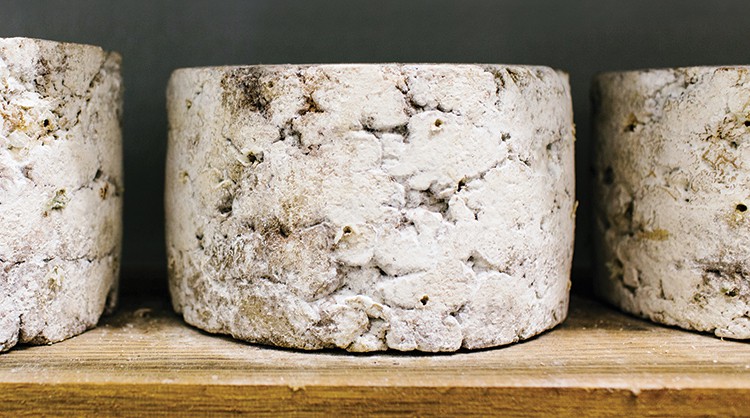
Making It Work
But that same sunshine can also be a curse, as the muggy climate allows harmful critters to flourish. During the farm’s first year, Rebecca and Ross lost half their herd due to parasites and the animals’ shock at being transferred to new pasture. “If we knew how hard it was going to be, I don’t think we would have done it,” Rebecca says.
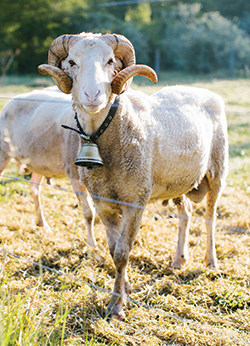
Mossad, an Awassi-cross ram, wears a bell so farmhands can hear him approaching.
Today, they are taking steps to leave those painful memories in the rearview mirror. Most dairy sheep in America have been bred to withstand harsh winters and mild summers, so Rebecca and Ross are crossing their 200-strong flock with more heat-tolerant animals, such as Awassis, which hail from the Middle East. “You gain some hardiness but lose some milk quality,” says Rebecca. Ross is also exploring importing sheep genetics in the future to help expedite the creation of a South-proof sheep breed.
In the meantime, though, the couple is supporting their existing flock as much as possible—even though that likely means holding off on organic certification. “Sheep are not bred for the South, and there are many stressors [for them] in this environment,” Rebecca says. “Not supporting their immune systems with the appropriate dewormers? … It’s inhumane. We have to give them that crutch while we are developing the breed.”
The couple is also reducing parasites in their pastures by employing the “stacking” method. On a given patch of land, the sheep graze first for 24 hours, four Jersey cows come in two days later, and the chickens (between seven hundred and a thousand at a time) forage last. Here’s how it works: Pests dropped by sheep hatch larvae in the grass that the cows then eat—but since the bugs are only harmful to ovines, they die off in the cows’ digestive tract. Likewise, cow parasites cannot survive in chickens, and fowl droppings fertilize the soil to boot.
Even though grass may grow year-round at Many Fold, Ross and Rebecca do supplement with hay and a low-grain feed in winter to give the meadows a chance to grow back full and lush. “At the end of the day, it’s all about soil building,” Rebecca explains. Many other aspects of farm life are also firmly regimented by the seasons, including reproduction: Ewes are bred in early fall and give birth in early spring, aided by farm apprentices and volunteers.
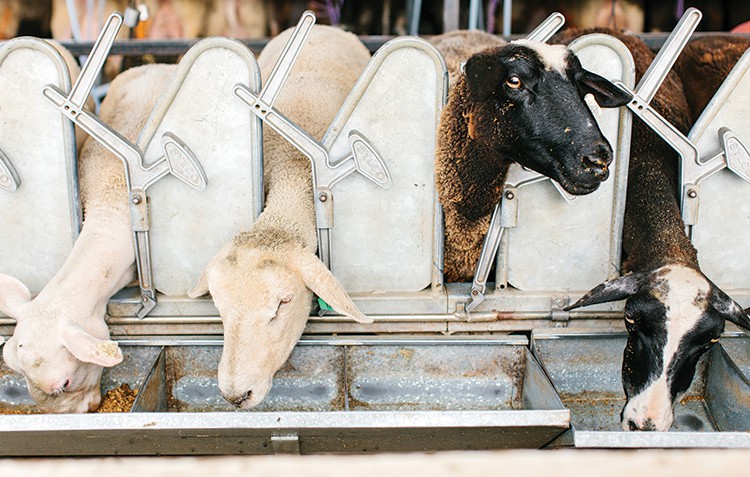
Doing the Most Good
It clearly takes a community to help build and run the small business—so the Williamses want to give back through educational opportunities. Currently, Many Fold leads farm tours for visitors, local schools (including a Chattahoochee Hills charter school Rebecca helped found), and industry professionals. They’re also strengthening the farm’s relationship with the restaurant world by hiring kitchen veterans as cheesemakers and offering the creamery’s Jersey cultured butter exclusively to eateries. In the future they plan to launch a more formal program that shows chefs how to make cheese, helping them understand the craft and learn how to use the products on their menus.
Despite all this forward momentum, last year was another tough one for Many Fold, as some breeding missteps resulted in a milk shortage. But their big dreams and work ethic keep them going, as do the awards they won at the 2015 American Cheese Society Judging & Competition. Director of operations and on-site monger Tim Gaddis entered their entire lineup into the contest, and Many Fold swept all three sheep’s milk categories, with four different cheeses netting ribbons. Talk about positive feedback. Says Rebecca of the wins: “That’s a vote of confidence from your peers. That says, you’re doing a good job—keep going.”
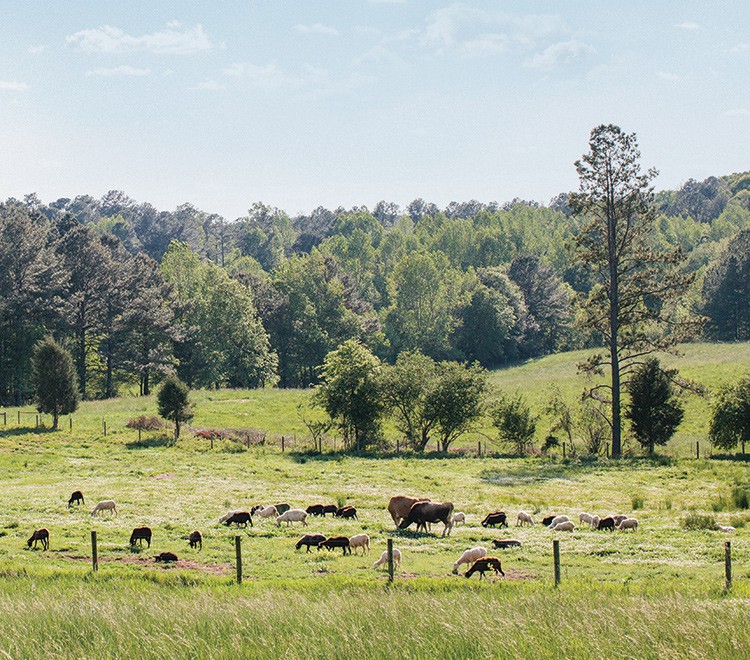
Photographed by Ali Harper



